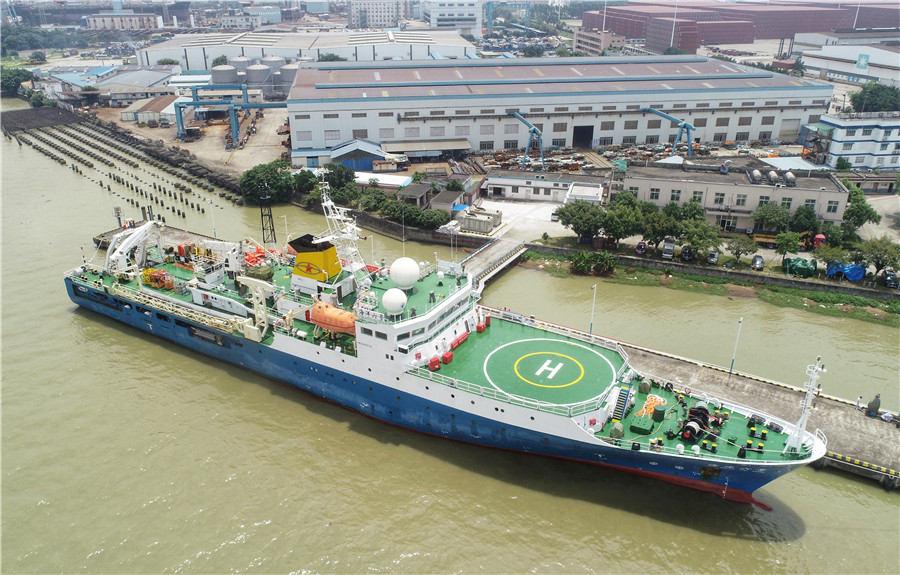Scientists discover new 'cold vent' on ocean floor


Chinese scientists discovered an active "cold vent" in the South China Sea during a research voyage that concluded on Thursday.
Cold vents are areas where methane, hydrogen sulfide and other hydrocarbons seep out off the ocean floor, providing a unique environment for organisms or the development of topographic features.
Samples and data of organisms, water, gas and sediments were collected to further the study of the evolution and mechanisms of cold vents, according to the China Geological Survey of the Ministry of Natural Resources.
Among the organisms seen was a type of tubeworm-paraescarpia echinospica-in the cold vent 1,390 meters below sea level.
With a 250-year life span, the species is one of the longest living, said Gong Yuehua, a senior engineer of the Guangzhou Marine Geological Survey, according to a report by China Central Television.
- Robust regulation key to promoting TCM globally
- Breakthrough in BMI tech aids patients
- Xinjiang invests heavily in water conservancy project construction
- Experts: Lai not freedom fighter, but a pawn of the West
- China planning to raise age limit for blood donors, shorten the minimum interval
- Breakthrough in BMI tech aids patients





































